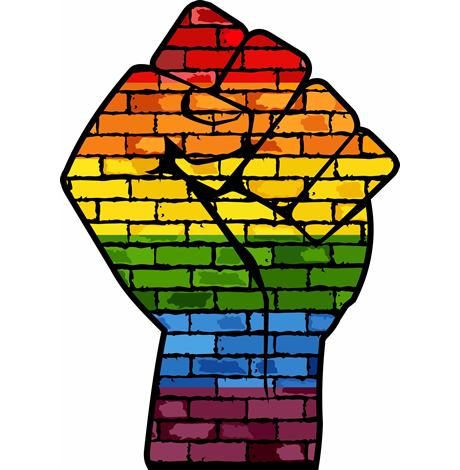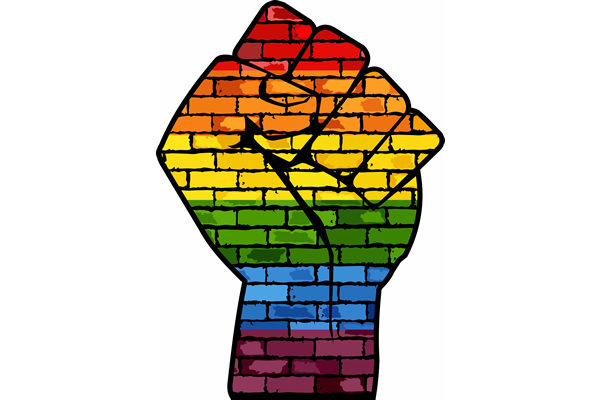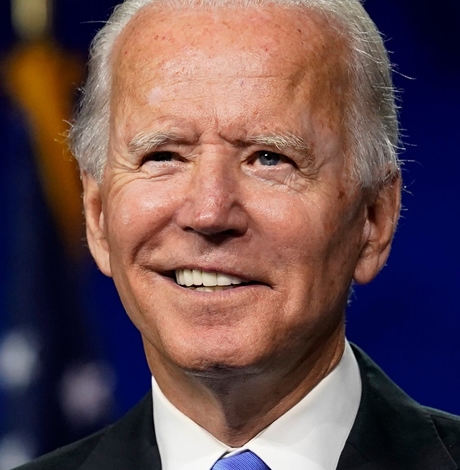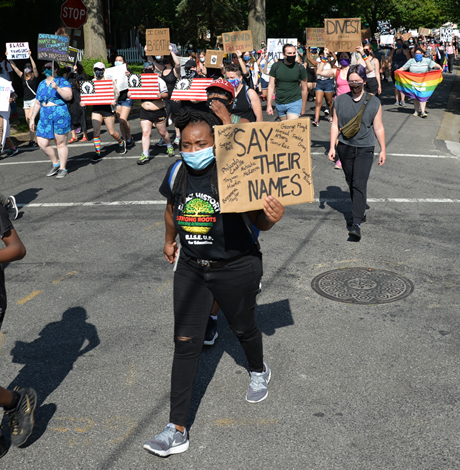National
U.S. agency seeks to cut LGBTQ protections in union contract talks
NLRB denies meeting with employees concern about anti-LGBTQ move


The National Labor Relations Board is seeking under the Trump administration to axe LGBTQ non-discrimination language — as well as protections based on race, sex and religion — from its union contract with professional attorneys within the U.S. agency as part of collective-bargaining negotiations, according to union representatives.
The union, known as the National Labor Relations Board Professional Association, is made up of about 120 attorneys at the NLRB headquarters in D.C.
“They’re taking it all out,” one NLRBPA member said. “They’re basically saying it’s duplicative, it’s covered by statute, so we don’t want to do anything through grievance and arbitration. If you think there is discrimination, then you need to a file complaint with the EEOC.”
The NLRBPA is pleading with Rep. Jamie Raskin (D-Md.) and Sen. Dianne Feinstein (D-Calif.) to step in and urge the agency to keep those non-discrimination protections in place within the union contract. Individually, LGBTQ employees with concerns over removal of the non-discrimination protections also sought to meet with management on the issue, but were rebuffed, union members told the Washington Blade.
For the time being, NLRB is required to maintain the non-discrimination protections from the previous contract, even though that contract expired last year. But that situation is expected to change soon. As a result of executive orders signed by President Trump last year, federal employee unions are required to engage in negotiations with their respective agencies to form new contracts.
In a pair of letters dated March 5, the NLRPA calls on Raskin and Feinstein to engage in oversight of the agency as it seeks to eliminate those non-discrimination protections. One letter calls the proposal “a giant step backward in the fight to ensure that LGBTQ workers receive equal treatment under the law.”
“It is a mark of shame that employment discrimination against LGBTQ employees, including federal employees, has been tolerated for so long, and to callously take any protections away after so long a struggle for equal treatment would be unconscionable,” one letter says. “In that spirit, we would be most grateful for any oversight of the agency and help that you can provide to defend the workplace rights of our LGBTQ brothers and sisters.”
The letters also express other concerns. Among them is NLRB proposing to eliminate a standing joint labor-management Equal Employment Opportunity Committee, a reversal the union says turns “historically a cooperative relationship between management and the union into an adversarial relationship.” The NLRB also proposes to undercut the grievance and arbitration system in other ways, the letter says.
Raskin, in a statement to the Blade responding to the letter, said NLRB’s proposed removal of LGBTQ protections is unjust, especially from a U.S. agency charged with enforcing federal labor law.
“Trump’s administration has tried from the start to purge all mention of LGBTQ rights from federal law and policy,” Raskin said. “Now, by proposing to eliminate protections for LGBTQ employees from its collective bargaining agreements, the NLRB — which is supposed to be a leader for workplace fairness—becomes the latest perpetrator of the administration’s political assault on equal protection and equal employment rights for the LGBTQ community.”
NLRB, according to members of the union, justified its proposed removal of the non-discrimination protections on the basis that employees could seek recourse against discrimination under Title VII of the Civil Rights Act of 1964, a federal law that bars discrimination on the basis of race, color, religion, sex and national origin.
But that law as it stands affords no protections based on sexual orientation or gender identity. Although the U.S. Supreme Court is considering litigation that will decide whether anti-LGBTQ discrimination is a form of sex discrimination, thus illegal under Title VII, there is no certainty that will happen.
Should the Supreme Court rule Title VII doesn’t cover anti-LGBTQ discrimination, NLRBPA attorneys would have no recourse under federal law for LGBTQ discrimination claims.
NLRBPA employees — even though they work within D.C. — also aren’t covered by the D.C. Human Rights Act. Although the law bars anti-LGBTQ discrimination, the D.C. Human Rights Act doesn’t have jurisdiction over federal entities, such as NLRB.
Over the course of contract negotiations, one NLRBPA member said, management was unmoved by the argument LGBTQ non-discrimination protections are needed in the union contract because the Supreme Court might be against them under Title VII.
“There’s a possibility we’re not going to be covered by statute, so we will have no protections whatsoever,” the NLRBPA members said. “And my understanding was the agency response was, ‘We can’t control what the Supreme Court does.”
According to the NLRBPA, non-discrimination protections based on sexual orientation have been part of the NLRBPA contract since 2002 and non-discrimination protections based on gender identity have been part of the contract since 2017. Although that contract was terminated in 2019, the agency remains legally obligated to enforce it until a new contract agreement with the union is reached.
“So you can imagine our dismay when we received contract proposals from management eliminating the contractual provisions prohibiting discrimination based on sexual orientation and stating that any ‘prior MOUs, agreements, or settlements executed prior to the latest date below are not incorporated into this agreement,’” the letters say.
Outside of union negotiations, the letter says, a group of LGBTQ employees sought to meet with senior management to discuss concerns over the removal of the non-discrimination language, but were unsuccessful.
Adam Naill, an NLRB attorney and NLRB union official, affirmed to the Blade via email a group of LGBTQ employees were denied a meeting with management outside the negotiations.
“A number of LGBTQ folks at the agency attempted to meet with NLRB senior leadership to just express their concerns about the proposal and how they’re feeling — frightened and alarmed — about management’s position on this and were rebuffed, senior leadership said they wouldn’t meet with employees about the issue,” Naill said.
The NLRB justified denying the meeting, one NLRBPA member said, by giving assurances the agency is committed to LGBTQ equality and saying the meeting would be inappropriate amid ongoing contract negotiations.
But the NLRBPA member expressed doubt about that commitment to LGBTQ equality based on attorneys in the workforce overheard making homophobic statements.
“Among some of the rank and file attorneys, those people who very likely in the coming years will probably be promoted to supervisors, there’s been several times overhearing some very problematic homophobic, misogynist statements coming from them,” the NLRBPA member said.
The office of Feinstein didn’t respond Monday to the Blade’s request to comment on the proposed removal of LGBTQ protections. The NLRB declined to comment for this article, citing a practice of withholding commenting on contract negotiations with unions.
Jerame Davis, executive director of the LGBTQ labor group Pride at Work, condemned NLRB in a statement to the Blade, but said this move is consistent with the policy of the Trump administration.
“As taxpayers, we should expect that all working people — including LGBTQ working people — would be protected from discrimination in a federal government job,” Davis said. “But it is particularly insulting that these protections are being stripped from the working people who protect our country’s workforce from unfair labor practices. There is little that has been consistent with this administration, but their attacks on LGBTQ people have come regularly, like clockwork.”
The union for the professional attorneys at NLRB is different from the union for the 1,200 employees in the field offices, which is the known simply as the National Labor Relations Board Union, or NLRBU.
According to NLRBPA, the sister union is also currently engaged in contract negotiations, but they’re still bargaining over ground rules and haven’t made substantive proposals. The Blade emailed NLRBU seeking a comment on the situation.
NLRB chair John Ring and NLRB general counsel Peter Robb are set to testify on Wednesday before the House Appropriations Committee on the Trump administration’s budget request. It remains to be seen whether the agency officials will be questioned on the proposed non-discrimination omission from the union contract.
State Department
State Department releases annual human rights report
Antony Blinken reiterates criticism of Uganda’s Anti-Homosexuality Act

Secretary of State Antony Blinken on Monday once again reiterated his criticism of Uganda’s Anti-Homosexuality Act upon release of the State Department’s annual human rights report.
“This year’s report also captures human rights abuses against members of vulnerable communities,” he told reporters. “In Afghanistan, the Taliban have limited work opportunities for women, shuttered institutions found educating girls, and increasing floggings for women and men accused of, quote, ‘immoral behavior,’ end quote. Uganda passed a draconian and discriminatory Anti-Homosexuality Act, threatening LGBTQI+ individuals with life imprisonment, even death, simply for being with the person they loved.”
Ugandan President Yoweri Museveni last May signed the law, which contains a death penalty provision for “aggravated homosexuality.”
The U.S. subsequently imposed visa restrictions on Ugandan officials and removed the country from a program that allows sub-Saharan African countries to trade duty-free with the U.S. The World Bank Group also announced the suspension of new loans to Uganda.
Uganda’s Constitutional Court earlier this month refused to “nullify the Anti-Homosexuality Act in its totality.” More than a dozen Ugandan LGBTQ activists have appealed the ruling.
Clare Byarugaba of Chapter Four Uganda, a Ugandan LGBTQ rights group, on Monday met with National Security Council Chief-of-Staff Curtis Ried. Jay Gilliam, the senior LGBTQI+ coordinator for the U.S. Agency for International Development, in February traveled to Uganda and met with LGBTQ activists who discussed the Anti-Homosexuality Act’s impact.
“LGBTQI+ activists reported police arrested numerous individuals on the basis of their sexual orientation or gender identity and subjected many to forced anal exams, a medically discredited practice with no evidentiary value that was considered a form of cruel, inhuman, and degrading treatment and could amount to torture,” reads the human rights report.
The report, among other things, also notes Ugandan human rights activists “reported numerous instances of state and non-state actor violence and harassment against LGBTQI+ persons and noted authorities did not adequately investigate the cases.”
Report highlights anti-LGBTQ crackdowns in Ghana, Hungary, Russia
Ghanaian lawmakers on Feb. 28 approved the Promotion of Proper Human Sexual Rights and Ghanaian Family Values Bill. The country’s president, Nana Akufo-Addo, has said he will not sign the measure until the Ghanaian Supreme Court rules on whether it is constitutional or not.
The human rights report notes “laws criminalizing consensual same-sex sexual conduct between adults” and “crimes involving violence or threats of violence targeting lesbian, gay, bisexual, transgender, queer or intersex persons” are among the “significant human rights issues” in Ghana.
The report documents Hungarian Prime Minister Viktor Orbán and members of his right-wing Fidesz party’s continued rhetoric against “gender ideology.” It also notes Russia’s ongoing crackdown against LGBTQ people that includes reports of “state actors committed violence against LGBTQI+ individuals based on their sexual orientation or gender identity, particularly in Chechnya.”
The report specifically notes Russian President Vladimir Putin on July 24 signed a law that bans “legal gender recognition, medical interventions aimed at changing the sex of a person, and gender-affirming care.” It also points out Papua New Guinea is among the countries in which consensual same-sex sexual relations remain criminalized.

The Cook Islands and Mauritius in decriminalized homosexuality in 2023.
The report notes the Namibia Supreme Court last May ruled the country must recognize same-sex marriages legally performed outside the country. The report also highlights the Indian Supreme Court’s ruling against marriage equality that it issued last October. (It later announced it would consider an appeal of the decision.)
Congress requires the State Department to release a human rights report each year.
The Biden-Harris administration in 2021 released a memorandum that committed the U.S. to promoting LGBTQ+ and intersex rights abroad.
The full report can be read here.
National
Same-sex couples vulnerable to adverse effects of climate change
Williams Institute report based on Census, federal agencies

A new report by the Williams Institute at the UCLA School of Law finds that same-sex couples are at greater risk of experiencing the adverse effects of climate change compared to different-sex couples.
LGBTQ people in same-sex couple households disproportionately live in coastal areas and cities and areas with poorer infrastructure and less access to resources, making them more vulnerable to climate hazards.
Using U.S. Census data and climate risk assessment data from NASA and the Federal Emergency Management Agency, researchers conducted a geographic analysis to assess the climate risk impacting same-sex couples. NASA’s risk assessment focuses on changes to meteorological patterns, infrastructure and built environment, and the presence of at-risk populations. FEMA’s assessment focuses on changes in the occurrence of severe weather events, accounting for at-risk populations, the availability of services, and access to resources.
Results show counties with a higher proportion of same-sex couples are, on average, at increased risk from environmental, infrastructure, and social vulnerabilities due to climate change.
“Given the disparate impact of climate change on LGBTQ populations, climate change policies, including disaster preparedness, response, and recovery plans, must address the specific needs and vulnerabilities facing LGBTQ people,” said study co-author Ari Shaw, senior fellow and director of international programs at the Williams Institute. “Policies should focus on mitigating discriminatory housing and urban development practices, making shelters safe spaces for LGBT people, and ensuring that relief aid reaches displaced LGBTQ individuals and families.”
“Factors underlying the geographic vulnerability are crucial to understanding why same-sex couples are threatened by climate change and whether the findings in our study apply to the broader LGBTQ population,” said study co-author Lindsay Mahowald, research data analyst at the Williams Institute. “More research is needed to examine how disparities in housing, employment, and health care among LGBT people compound the geographic vulnerabilities to climate change.”
Read the report
Federal Government
Lambda Legal praises Biden-Harris administration’s finalized Title IX regulations
New rules to take effect Aug. 1

The Biden-Harris administration’s revised Title IX policy “protects LGBTQ+ students from discrimination and other abuse,” Lambda Legal said in a statement praising the U.S. Department of Education’s issuance of the final rule on Friday.
Slated to take effect on Aug. 1, the new regulations constitute an expansion of the 1972 Title IX civil rights law, which prohibits sex-based discrimination in education programs that receive federal funding.
Pursuant to the U.S. Supreme Court’s ruling in the landmark 2020 Bostock v. Clayton County case, the department’s revised policy clarifies that discrimination on the basis of sexual orientation and gender identity constitutes sex-based discrimination as defined under the law.
“These regulations make it crystal clear that everyone can access schools that are safe, welcoming and that respect their rights,” Education Secretary Miguel Cardona said during a call with reporters on Thursday.
While the new rule does not provide guidance on whether schools must allow transgender students to play on sports teams corresponding with their gender identity to comply with Title IX, the question is addressed in a separate rule proposed by the agency in April.
The administration’s new policy also reverses some Trump-era Title IX rules governing how schools must respond to reports of sexual harassment and sexual assault, which were widely seen as imbalanced in favor of the accused.
Jennifer Klein, the director of the White House Gender Policy Council, said during Thursday’s call that the department sought to strike a balance with respect to these issues, “reaffirming our longstanding commitment to fundamental fairness.”
“We applaud the Biden administration’s action to rescind the legally unsound, cruel, and dangerous sexual harassment and assault rule of the previous administration,” Lambda Legal Nonbinary and Transgender Rights Project Director Sasha Buchert said in the group’s statement on Friday.
“Today’s rule instead appropriately underscores that Title IX’s civil rights protections clearly cover LGBTQ+ students, as well as survivors and pregnant and parenting students across race and gender identity,” she said. “Schools must be places where students can learn and thrive free of harassment, discrimination, and other abuse.”
-

 South America3 days ago
South America3 days agoDaniel Zamudio murderer’s parole request denied
-

 Maryland4 days ago
Maryland4 days agoMontgomery County police chief discusses arrest of trans student charged with planned school shooting
-

 Commentary4 days ago
Commentary4 days agoWorld ‘isn’t much different today’
-

 Theater3 days ago
Theater3 days ago‘Amm(i)gone’ explores family, queerness, and faith








